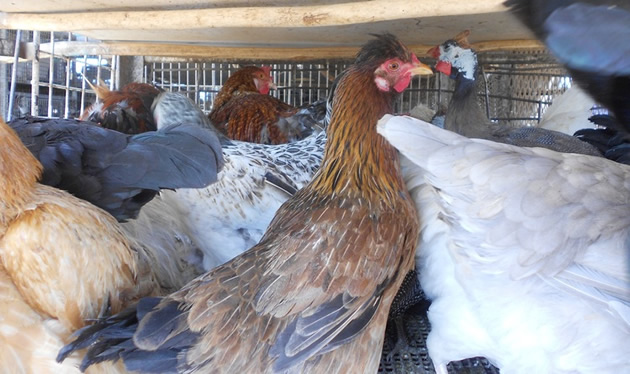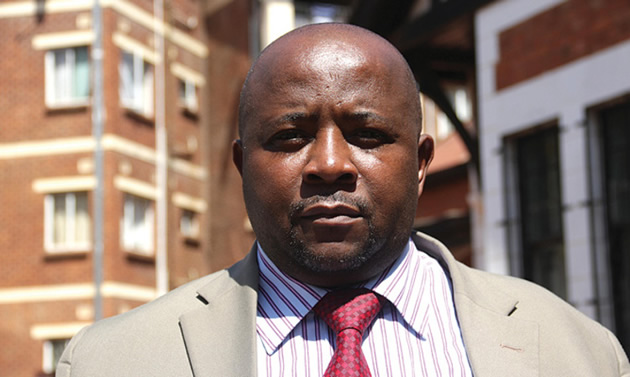We need knowledge filters


Do quails have any medicinal benefits? Deep research should show this as well as compared with other indigenous birds such as guinea fowls, turkey, pigeons, ducks and road runners
Charles Dhewa
Given the expanding sources of information and ideas, it is now becoming very difficult for one to know whether s/he is receiving valuable information for decision-making.
Filters such as experts and communities of practice are becoming more important but very scarce. To avoid group think, it is also no longer enough to depend on your close circle of friends for information because you almost think the same. It is better to have nine diverse ideas than have 900 people who think the same. If you agree on everything quickly, it means you are already late – the ideas have become common sense.
To address some of these challenges, eMKambo is promoting the use of data to foster a quantified understanding of the agriculture sector. So far, there is increasing evidence showing that brokering relationships results in better filtered information that can be useful to a number of stakeholders.
How do we deal with
misinformation and unverified claims?
Zimbabwe is currently teeming with unverified claims being confused with factual knowledge. One example is the production and use of quails (zvihuta).
The selling proposition for these birds is not proper for business because of claims that the bird cures cancer and other ailments. To make it worse, the medical field is quiet about the role of zvihuta in curing cancer and other ailments. A major question that has not been answered is: What are the medicinal properties of these birds?
Deep research should show this as well as compare with other indigenous birds such as guinea fowls, turkey, pigeons, ducks and road runners. In the absence of a credible filter such as a recognised research institute, people even doubt if quails being raised in urban homes are the same as those found in rural and farming areas.
Others think the quails being promoted have been produced through behind-the- scenes breeding. While quail breeding is common in countries like Japan and the United Kingdom, it seems a new phenomenon in Zimbabwe.
Using diseases to sell products
There is an increasing tendency to use ailments or diseases to sell products. For example, Moringa was heavily associated with suppressing HIV and AIDS but it is no longer receiving much media attention. There is a strong view that creating quick and opportunistic businesses that associate natural products with curing certain ailments can have a negative impact on such natural products.
By associating quail birds with particular diseases, we are probably stigmatising them such that whoever is found eating the birds is associated with a certain disease. Again, creating too much hype around the quail bird may result in it becoming extinct if everyone starts consuming it. The bird has been available for generations.
Why is it suddenly hogging the limelight? Is there a laboratory where it has been tested over time? For example, it takes 8 to 12 years of rigorous testing to produce a new maize seed variety.
Two years ago, lack of testing and rigorous filtering resulted in many people losing money to the sack potato frenzy which was promoted by non-scientists.
There were claims that a producer could harvest 15kg of potatoes from one plant grown in a sack. By the time many people discovered this was not true they had lost money.
Rather than verifying with the Department of Research and Specialist Services (DR&SS) or the Department of Agricultural Extension and Training Services (Agritex), many farmers jumped onto the bandwagon. Unfortunately, experts did not come forward as filters to correct this myth before the bandwagon started moving.
Myths and superstition still
influence our decision-making
The promotion of myths goes with people’s rare opportunity to understand the life of birds such as quails. Growing up in rural areas where this bird was available, it was very difficult for us to understand how it survived.
The same with other birds such as the owl (associated with witchcraft) and nyenga nyenga which soccer players consumed because someone claimed eating the bird would enable them to dribble like the bird. All these are myths which continue to influence how people make decisions.
A lot of secretive knowledge has revolved around the domestication of wild guinea fowls. However, over the years, it has become clear the domesticated guinea fowl is different from the wild one.
Guinea fowls kept with chickens have become docile, may be due to the feed. People claim that there is also a difference in taste in the wild guinea fowl and the domesticated ones. It looks like interfering with nature has destroyed some of our natural products in terms of taste and other important natural attributes.
Although we now live in the modern era driven by information and communication technologies (ICTs), myths and superstition still drive many people’s decision-making. The media has been full of stories of people of all social classes losing money to questionable characters and situations. Unfortunately, the majority of myths are propagated by smart people with an agenda to make money.
They identify knowledge gaps where people are struggling to come up with a cure, cancer for example, and pretend to know the solution which is tied to an innocent bird such as a quail. Very soon we are going to run out of these species. For a nation with so many raw materials and natural products to experiment with, has all our collective knowledge become so narrow as to focus on one small bird?
Other myths have been associated with mafuta eshato, mafuta eshumba and a tortoise which some people associate with long life. In some communities, it is common to hear people say to someone who has lived long “akadya kamba”.
A lot of misinformation is based on twisting our cultural beliefs. Although it is possible that some forms of knowledge lack clear questioning and verification pathways, relevant scientific institutions should be more pro-active in dispelling certain claims in their field of expertise rather than keeping quiet or waiting to be asked. When there is a knowledge vacuum, people continue experimenting and filling those gaps with their own improvised answers.
Is there a role for formal
education and the media?
Some of the knowledge used to filter and verify certain claims should come from formal education. For example, the medical field and animal science should be able to correct myths that have circulated for too long to a point of being considered authentic knowledge.
On the other hand, before making information public, the mainstream media must conduct thorough research such as identifying verifiers to get a second or third opinion. Before going on air, make sure you have correct or balanced facts. Misinformation raises false expectations and alarms.
Converting half-baked ideas
into coherent narratives
Knowledge filtering should enable us to create complete narratives from half-baked ideas that are floating around. For instance, traders are good at experimenting and creating emergent practices from which society can benefit.
Through ICTs, we are becoming globally connected with a multitude of cultures and competition from all directions. It is in this context that knowledge filtering and sense making is becoming more important to master. Weaving networks that bring diversity of opinions and depth of knowledge requires optimal filtering where experts and knowledge champions aggregate information and ideas, selecting quality information and discarding the crap.
While books and journal articles are useful in codifying what scientists and other formally educated people have learnt, knowledge is becoming more of a negotiated agreement amongst diverse connected people not just the formally educated. Given their skills in ICTs, youth can play a critical role in community knowledge mobilisation initiatives.
They can add meta-sense to knowledge that is already existing in their communities. This could be through designing smart systems that pull peers to filter information collectively. Communication is now more about a community-based cognitive and emotional presence as well as bridging, bonding and belonging.
This calls for a dramatic shift in the mental framework of information, communication and work. The only way to influence conversations is to take part in them. Whoever wants to influence the process of knowing has to develop new habits of participation and communication. Youth are better at these processes.
Knowledge as a creative force
The way farmers and informal markets continue to function outside formal knowledge systems demonstrates that knowledge is a creative force that shapes human collectives. Filtering knowledge can help people discover some of the unwritten laws and rules that successful farmers and traders use to generate good results even in difficult times.
Besides signalling the need for codifying knowledge, filtering makes people realise why stories can be more powerful than data and ideas. By empowering policymakers and the general public with concrete ways of describing, measuring and comparing information flow, filtering will help in mobilising public interest around community information needs. Opportunities for advancement and wider adoption will become apparent once people are enabled to map emerging possibilities.
Organisations and communities will only be able to turn the massive influx of data into comparative advantage if they can learn to effectively filter and focus on what is important. This is also how they can tackle the problem of cognitive overload. The practice of social filtering – ranking, tagging and adding other metadata to information enables higher quality knowledge to rise above the noise.
- Charles Dhewa is a proactive knowledge management specialist and chief executive officer of Knowledge Transfer Africa (www.knowledgetransafrica.com) whose flagship eMKambo (www.emkambo.co.zw) has a presence in more than 20 agricultural markets in Zimbabwe. [email protected]; Mobile: +263 774 430 309 / 772 137 717/ 712 737 430.









Comments